Drug and Alcohol Rehab in Norfolk
Quick links for drug and alcohol rehab in Norfolk
- What is Drug and Alcohol Rehab in Norfolk Like?
- How Do I Prepare for Drug and Alcohol Rehab in Norfolk?
- What Happens When I Arrive at Drug and Alcohol Rehab in Norfolk?
- How Effective is Rehab in Norfolk at Treating Alcohol or Drug Addictions?
- What Happens If I Don’t Get Help From a Drug and Alcohol Rehab in Norfolk?
- What Are the Alternatives to Going to Drug and Alcohol Rehab in Norfolk?
- Is Drug and Alcohol Rehab in Norfolk Accessible Through the NHS?
- Can I Recover From Addiction Without Help From a Drug and Alcohol Rehab in Norfolk?
- How Can I Convince a Loved One to Receive Drug and Alcohol Rehab in Norfolk?
- What is the Admissions Process For Drug and Alcohol Rehab Like in Norfolk?
The line that separates social drinking from alcohol abuse can be vague, and this is why it is so easy for people to cross the line into addiction without even realising it.
This type of problem is insidious, and this is why it is so easy for the individual to end up dealing with denial. In the beginning, the person may have found that alcohol or drugs seemed to be making their life better.
It may have helped them deal with shyness or it may have even helped alleviate some mental health symptoms such as depression. Over time though, these substances start to bring more disadvantages than advantages, but the individual may fail to recognise this.
Anyone living in Norfolk who even slightly suspects that they might have a drug or alcohol problem should not ignore this suspicion.

Therapist taking notes with a recovery group at a drug and alcohol rehab clinic in Norfolk
60 people were admitted to the hospital every day in Norfolk due to alcohol in 2019. (1) It’s also been reported that drug-related deaths are higher than ever before. (2)
The rate of drug and alcohol crime in Norfolk is another clear indicator of just how serious a problem addiction is:
| Drug and Alcohol Crime Statistics in Norfolk | Value |
|---|---|
| Annual Crime Rate | 2 crimes per 1000 workday people |
| Crime Rate Compared to National | 74% |
| Drug and Alcohol Crime Percentage in Norfolk | 2.5% |
| Total Drug and Alcohol Crimes in Noroflk | 1.7k |
| Year-over-Year Decrease in Drug and Alcohol Crimes | 9% |
| Drug and Alcohol Crime Rate in Norfolk | 2 crimes per 1,000 working people per annum |
| Rank in England and Wales Counties | 22 out of 54 counties |
The most effective way to treat addiction is through entering a drug and alcohol rehab in Norfolk.
Specialised treatments that target every aspect of the disease mean that people have the best chances of recovering. Substance use restructures the brain and how it functions. It’s only through intense psychotherapies that this can be healed.
The physical and social aspects of the disease are also treated at rehab. You can read more about the disease of addiction here.
Whether you’re struggling with substance use disorders, a behavioural addiction or physical dependence, there are many rehabs in Norfolk that treat a broad range of problems.
The DSM-5 assessment can be used to measure whether you have an addiction, and how severely this is affecting you.
Fully-specialised programmes are available at a private rehab in Norfolk. Person-centred care will treat your unique situation and deliver a personalised care plan to give you the best chance of success.
What Impacts Can Drug and Alcohol Addictions Have on a Person?

Old man reading a book next to a lake
Nobody ever sets out to become addicted to alcohol or drugs. This is something that can just creep up on people.
If the individual understood at the beginning where alcohol or drug use was going to take them they would be unlikely to pursue this behaviour.
Once the individual is hooked though, it can be difficult for them to break away without some type of addiction support.
The dangers associated with this type of problem include:
- The longer the person remains trapped in addiction the more they will end up losing. One of the first things to go is usually the person’s self-esteem – they can feel unable to cope without these substances. If the individual continues with the behaviour they will start to lose more and more and unless they receive addiction treatment they can end up facing health problems and death.
What Impact Can Drug and Alcohol Addictions Have on Families?
- One of the other dangers of falling into addiction is that it harms many other people. It is often referred to as a family disease because it can have such a detrimental impact on a family – this is particularly the case when it involves a parent and breadwinner. These other people may never abuse alcohol or drugs yet they suffer many of the consequences of the addiction.
- The fact that the individual is addicted to substances will often mean that they are unable to fulfil their work obligations. Things can become so bad that the individual becomes unemployable.
- One of the worst things about addiction is that it steals time from people that they can never get back. Some people will have to deal with this problem for year or even decades – and some individuals never manage to get better.
Anyone living in Norfolk and dealing with this type of problem should get help right away. This could involve something like alcohol or drug counselling or entering a drug rehab centre.
These problems rarely sort themselves out without help so it is vital that the individual seeks out appropriate resources.
Once the individual is ready to break away from this behaviour they will get a second chance in life, and there are many examples of people who broke away from addiction and went on to accomplish amazing things.
Don’t allow your life to be controlled by addiction – get the help of a drug and alcohol rehab in Norfolk by calling us on 0800 088 66 86
What is Drug and Alcohol Rehab in Norfolk Like?

Patient speaking with staff member at a drug and alcohol rehab in Norfolk
In addiction, there are ‘seven Rs’ what make up a successful recovery. These are Renounce, Reinvent, Restructure, Rebuild, Rename, Rebrand and Reset.
There are a few different models of rehabilitation where you can develop these, but treatment programmes will all shape their treatments around these principles.
What is Inpatient Addiction Treatment?
In short, inpatient addiction rehab is where an individual would reside within a residential rehabilitation centre in Norfolk while undergoing rehabilitative treatment.
These residential centres are common across the UK, and access to inpatient care in and around Norfolk can be arranged for those for whom it may be suitable.
This is shown to be a more effective form of care when an individual is struggling more with the effects of addiction.
For example, homelessness and lack of support from family was shown to increase completion of inpatient addiction treatment programmes (3). Those who had good support from close friends and family were better suited to other forms of treatment.
What is Outpatient Addiction Treatment?
Opposite to inpatient care, outpatient addiction rehab refers to any rehabilitation programmes that take place outside of one fixed location and on a far less regular basis.
While partaking in outpatient care in Norfolk, an individual may attend counselling sessions on a weekly or monthly basis, but they will remain living at home or in a separate location to the location of their rehabilitative treatments.
Studies show that outpatient care is especially effective when an individual seeks a clinical case manager (CCM) – or someone to manage community treatment programmes (4). This ensures the individual’s access to outpatient treatment as well as their attendance.
Residential Alcohol Rehab Vs. Outpatient. Which is Better?

Older woman laughing at a drug and alcohol rehab in Norfolk
Depending on the substance, and each individual’s needs, every individual will be more suited to a different rehab programme.
The severity of their addiction and its effects is one of the leading factors in deciding which type of care is most suitable for an individual seeking rehabilitation in and around Norfolk.
In cases of criminality, it has been shown that those who are prescribed a rehabilitation programme as a result of the criminal justice system are more likely to stay in treatment for longer, therefore gaining more of the benefits (5).
This shows that long-term inpatient care is especially effective – dependent on the substance and the individual’s requirements of care.
How Do I Know If I Need Rehab?
Entering rehab is often an option that substance abusers will resist. It sounds so extreme, and the individual may feel convinced that they will be able to deal with their problems alone.
The reality is that the individual will probably have already tried to quit without help but failed to escape.
How Do I Know When My Addiction is Something to Worry About?

Woman looking concerned in the kitchen of a residential drug and alcohol rehab centre in Norfolk
It may well be that until the individual becomes open to a new solution, one that involves help to end the addiction, they may remain trapped indefinitely.
Those who engage in this type of behaviour are caught in a downward spiral and the longer they delay getting the help they need the more they will end up suffering.
It is therefore vital that they get the help they need as soon as possible.
Rehab in Norfolk can come in many forms – residential or outpatient, long or short-stay.
But the aim will be for you to leave having detoxed from substances, received the therapy you require and equipped with the tools you need in order to stay away from relapse.
Start your recovery journey at a drug and alcohol rehab in Norfolk by calling our expert admissions team on 0800 088 66 86
What Type of Addictions Are Treated At Rehab?
Some of the issues a rehab in Norfolk can treat are:
- Heroin addiction
- Opioid use disorders
- Ketamine addiction
- Gambling addiction
- Benzodiazepines
- Gaming addiction
- Shopping addiction
Start your recovery journey at a drug and alcohol rehab in Norfolk by calling our expert team today on 0800 088 66 86
How Do I Prepare for Drug and Alcohol Rehab in Norfolk?
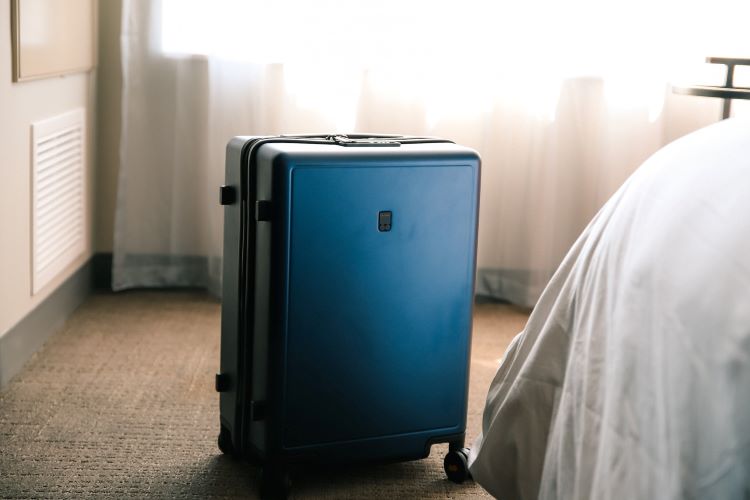
Photo of a suitcase in a drug and alcohol rehab in Norfolk
Many local councils in and around Norfolk offer taster sessions for different rehabilitation programmes across the area, allowing the perfect opportunity for individuals seeking care to get a glimpse of the suitability of different types of care.
This is a great way for individuals to determine whether or not this form of treatment will be effective for them, or if there are other similar programmes which may be more effective.
Combined with researching online at reputable sources, as well as getting in contact with suitable rehabilitation service providers, any individual can prepare for rehab in Norfolk and get a better idea of what to expect.
Do I Have to Tell My Boss About Alcohol Rehab?
Legally, individuals have no requirement to inform their employers about any personal issues, including attending rehabilitation treatment in Norfolk.
Though it may be suitable to attend outpatient care without informing your employer, attending residential inpatient care may be more difficult to explain.
However, it is important to remember that those who struggle more with the effects of addiction – referred to as a ‘high-risk group’ – may not consider those around them i.e., friends, family, and employers, to communicate with them effectively, have good problem- solving, or be involved in their lives (6).
This may affect the individual who is struggling in their ability to communicate their struggles with those around them, perhaps limiting whether or not they inform their employer about their struggles with addiction and the potential for them to partake in additional care in and around Norfolk.
Can I Lose My Job If I Leave to Go to Rehab?

Support group working together on laptops at a drug and alcohol rehab in Norfolk
In short, and in legal terms, an employer cannot fire an individual simply for going to rehab. However, there are many ways around this, and there are no clear definitions as to what constitutes an unfair termination of work.
Depending on the specific circumstances in which the individual may be fired from their position in Norfolk determines whether or not they may be lawfully dismissed from their position.
For example, if an individual struggling with alcoholism requires time to attend residential care, then this may be suitable, but if an individual begins to express addictive behaviours in the workplace, then this may be a different story.
There is also a lot of stigma around addiction and the type of individuals who struggle with it, but it is important to remember that addiction can affect any individual from any walk of life, and there is no one set of circumstances that can lead to this disorder.
How Do I Tell My Family I’m Going to Rehab?
In some cases, it may be suitable for individuals who are struggling with addiction and beginning rehabilitation treatment in Norfolk to present their situation in the form of an intervention.
This will give each individual present the opportunity to speak about their experiences of the individual’s addiction and how their attendance in rehabilitation may be effective for everyone around them.
Using this method, and other methods of introducing the possibility of attending rehab in Norfolk, is shown to encounter less resistance when concerning an adolescent who may be struggling with addiction when compared to adults struggling with addiction (7).
This may be important to bear in mind when dealing with this situation, either for yourself or for someone you know.
What Happens When I Arrive at Drug and Alcohol Rehab in Norfolk?

Photo of a luxury bedroom at a drug and alcohol rehab in Norfolk
If an individual is entering residential rehab in Norfolk for the first time, then this can be a daunting prospect. However, the choices and decisions that the individual has made up until this point should make some of the process more familiar.
An individual’s first few days in rehab are essential, as they show how an individual is settling into their routine and can have key indicators into the likelihood of a successful recovery.
One study showed that women who abstained from the substance that they were addicted to during their first week of rehab (after detoxification) were more likely to remain in treatment for longer and had a more successful transition to aftercare (8).
What Happens During a 28-Day Drug and Alcohol Rehab Programme in Norfolk?
As mentioned throughout this page, there are three key stages of rehabilitation in Norfolk, and across all providers of rehab recommended by Rehab Recovery.
These are:
- Detoxification
- Rehabilitation/therapy
- Aftercare
By following these three stages throughout the recommended 28 day stay in a residential rehab centre, individuals will make the best possible progress in their recovery journey, working towards meaningful and effective goals.
This length of time can be extended (or shortened), if needed. For example, some detox sessions take longer than others due to the complexities and complications that may be involved.
How Effective is Rehab in Norfolk at Treating Alcohol or Drug Addictions?

Two men embracing at a support group meeting in a drug and alcohol rehab in Norfolk
In the long term, effective drug and alcohol rehab in Norfolk is only effective when it takes into account the individual needs and requirements of every individual who partakes within its programmes.
One case study showed an additional bonus in suitability of care when there is a carefully implemented schedule and time is managed well to avoid boredom and loss of motivation within individuals (9).
In short, each individual will only get out of the experience what they put in – meaning that peak motivation, a good attitude, and a desire to recover are all essential in a successful and effective long-term recovery.
Does Drug and Alcohol Rehab for Teens Work?
Studies have shown that teenagers may be beginning to abuse substances obtained over the counter more and more in recent years, adding to the issues that young people are facing in relation to substance abuse and addiction.
However, there are many addiction services that cater specifically towards young people, ensuring that they have the best care that is suitable for them, no matter their social or demographic background.
It can be especially damaging for young people to go through addiction alone, so it is vital that these individuals seek support as soon as possible or are encouraged by those around them to seek suitable care in Norfolk.
Will Rehab in Norfolk Cure Me of My Addiction?

Two people having a serious conversation at a drug and alcohol rehab centre in Norfolk
Addiction is not considered a ‘choice’ or ‘moral failing’ on behalf of the addiction sufferer – rehab is about treating the disease of addiction.
Those people who go to rehab in Norfolk will be living with severe alcohol or drug addiction. When a person has a serious addiction, the best possible outcome is to achieve abstinence.
This is because addiction is a habit that becomes hardwired into the brain.
When this happens, it takes rehab treatments, time, and energy to begin rewriting the brain’s functioning. When a person leaves rehab in Norfolk, they might think they can handle a social drink or drug hit, but that usually results in relapse.
This is because it takes time to keep repeating the new patterns of healthy thoughts and behaviours before the old habits are overwritten. Even years down the line, people can relapse.
Addiction is a life-long disease. The best way of managing it in order to protect health is abstinence.
Experts have agreed that abstinence is always the safer and more effective route to addiction recovery.
Gain all the many benefits of attending a drug and alcohol rehab in Norfolk by calling our team today on 0800 088 66 86
What Happens If I Don’t Get Help From a Drug and Alcohol Rehab in Norfolk?

Person leaning on a fence at a drug and alcohol rehab in Norfolk
As mentioned previously, the importance of seeking help for addiction as soon as possible is of high priority for those struggling with its effects.
Without seeking suitable drug and alcohol rehab in Norfolk within a suitable period of time, an individual’s condition may worsen, with their addiction worsening and leading to further substance abuse.
This can have highly dangerous effects and can often lead to attempts to recover alone and untreated.
Individuals struggling with alcoholism are especially at risk due to the effects of alcohol withdrawal syndrome (AWS) and the consequences of leaving this condition untreated.
The National Hospital Discharge Survey of 2002 reported 226,000 patients discharged from short-stay hospitals after receiving a diagnoses of alcohol withdrawal, alcohol withdrawal delirium, or alcohol withdrawal hallucinosis (10).
What If I Suffer From Multiple Conditions Alongside Addiction?

Woman sat behind a sofa at a drug and alcohol rehab centre in Norfolk
Thousands of people entering rehab throughout the UK for addiction will also have mental health problems. This is because many people who have symptoms linked to negatively impacting mental health will turn to substances.
Drugs and alcohol are often used to placate or ease uncomfortable or distressing symptoms. When a person comes to rely on substances to ease their symptoms, they can develop an addiction.
On entering rehab, if this is discovered, the person will be given a dual diagnosis. Staff will then be able to treat the person for both addiction and mental health conditions.
Addiction can be the result of underlying health issues such as Borderline personality disorder, Eating disorders, anxiety, depression, bipolar disorder, schizophrenia, Obsessive Compulsive Disorder, and Post Traumatic Stress Disorder (PTSD), among others.
It’s useful for a diagnosis to be given because it means the resident’s needs will be fully accommodated.
If, for instance, the person has a personality disorder then they’ll receive treatments that are tailored to suit this alongside the addiction.
Many organisations across the UK offer free mental health support, whether you are also suffering from addiction or not.
A psychiatrist can offer you a diagnosis within your chosen rehab in Norfolk. This will be measured with a psychiatric assessment.
It can greatly improve your chances of recovery if you undergo psychiatric treatment, as it’s one less thing you’ll have to battle.
Some of the most useful include Mind UK, Young Minds, Rethink Mental Illness, Samaritans and Papyrus.
Discover how a drug and alcohol rehab in Norfolk will work to support your mental health by calling our team today on 0800 088 66 86
Why Should I Go to Drug and Alcohol Rehab in Norfolk?
A stay a clinic in Norfolk offers many benefits including:
- 24-hour care means staff are available to get you through difficult cravings through emotional and medicinal assistance where appropriate.
- A safe substance-free environment free from triggers.
- Delicious food to help replenish and support the brain and body.
- A medically supervised detox to ensure people with physical dependencies come off the substance in a safe and comfortable manner.
- Evidence-based therapies have proven to support people to quit substances the world over.
- Supportive group sessions offer connections and new perspectives.
- A team of specialist professionals who have years of experience treating people with addictions.
Find out how a drug and alcohol rehab in Norfolk can help you by calling our team on 0800 088 66 86
What Are the Alternatives to Going to Drug and Alcohol Rehab in Norfolk?
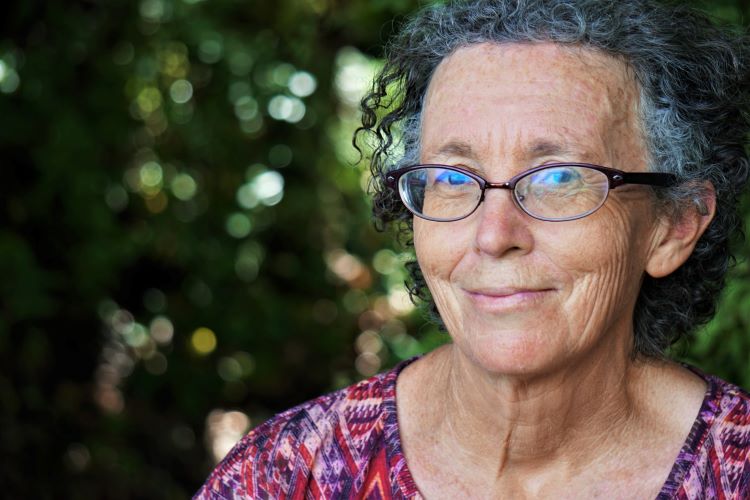
Older woman standing in a garden at a drug and alcohol rehab in Norfolk
What is Narcotics Anonymous?
Narcotics Anonymous (NA) is an addiction support group concerning those with addictions to specific substances e.g., cocaine, heroin, cannabis, etc., and was founded in the 1950s.
In 1996 in Australia, 91 new members of NA were interviewed and 62 (68%) were reinterviewed 12 months later, showing that high levels of self-help were more heavily correlated with lower levels of substance use and higher perceived levels of support within the group (11).
This shows the effectiveness of learning and partaking in groups such as this due to their supportive nature – something that is especially important in the field of addiction.
Click here to find your closest group today.
What is Alcoholics Anonymous?
Similar to NA, Alcoholics Anonymous (AA), is the sister group, working with and supporting those who have struggled or are struggling with alcoholism or alcohol abuse.
These groups are also effective in reducing the risk of relapse and bolstering each individual’s rehabilitation and recovery journey, enriching their experiences and building on their progress of making an effective recovery when implemented successfully (12).
These groups can be found in various locations in and around Norfolk for those seeking their support and services.
What is Smart Recovery?
Self-Management And Recovery Training (SMART Recovery) is another form of aftercare that individuals in Norfolk can take advantage of during and after leaving their chosen source of rehabilitation programmes.
Using a combination of CBT and self-help principals, SMART Recovery can be used for a variety of individuals and different needs.
Shown to be especially effective as a form of long-term recovery programmes (13), SMART Recovery is a great way for individuals to work independently, building on their own experiences and creating their own coping mechanisms for their long-term progress.
Various SMART Recovery groups operate throughout Norfolk, as well as innumerable online groups.
Will Your Insurance Cover Drug and Alcohol Rehab in Norfolk?

Insurance documents and magnifying glass
Again, there is no set answer to this question as it will depend on the individual and their specific type of healthcare plan that they have in place in Norfolk.
For example, some individuals have personal plans which can be tailored and made specific to their individual situation.
However, some individuals have healthcare plans through their employers, in which case further investigation into their specific plan and what it includes will need to be undertaken.
Is Drug and Alcohol Rehab in Norfolk Accessible Through the NHS?
The way rehabilitation services are formatted in the UK, they fall under private or council-funded and NHS services. There are some significant differences between the two.
NHS rehab in Norfolk only offers outpatient rehab services. There are occasionally funded spaces to enter a local private rehab clinic, but these are rare and there is a strict eligibility process to meet.
NHS-funded and NHS Foundation Trust rehab programmes offer a timetable of groups people can attend in their community. There is also some one-to-one input from drug and alcohol workers.
Private clinics focus mainly on residential rehab but there is outpatient rehab treatment too, mainly for those who have stayed already.
I Can’t Afford Drug and Alcohol Rehab – I Don’t Have Insurance. What Can I Do?
1. Norfolk Alcohol and Drug Behaviour Change Service
Address: Adobe House, 5 Barton Way, Norwich, NR1 1DL
Telephone: 01603 514 096
Website: https://www.changegrowlive.org/alcohol-drug-behaviour-change-norfolk
2. CAMHS Norfolk
Address: Mary Chapman House, Hotblack Road, Norwich, NR2 4HN
Telephone: 01473 237 055
3. The Matthew Project
Address: 70-80 Oak Street, Norwich, NR3 3AQ
Telephone: 01603 626 123
Website: https://www.matthewproject.org/
Change Grow Live is another addiction charity that operates in your area.
For help choosing between private and NHS rehab, give our expert team a call today on 0800 088 66 86
Can I Recover From Addiction Without Help From a Drug and Alcohol Rehab in Norfolk?

Couple walking through the countryside in Norfolk
Professionally supported drug and alcohol rehab in Norfolk is one of the best ways to recover from addiction, but it isn’t for everyone.
There are several other treatment options for people who have issues with drugs and alcohol.
In such cases, the following are available:
- Mutual support groups
- Family support groups for those who are caring for people with addictions.
- Home detox for those with dependencies who have been approved by a doctor as being low-risk. This type of detox, although in the person’s home, is overseen by a doctor.
Whatever support you need, whether from an alcohol and drug rehab centre in Norfolk or from one of these alternative sources, call our expert team today on 0800 088 66 86
Why Should You Avoid Recovering From Addiction on Your Own?
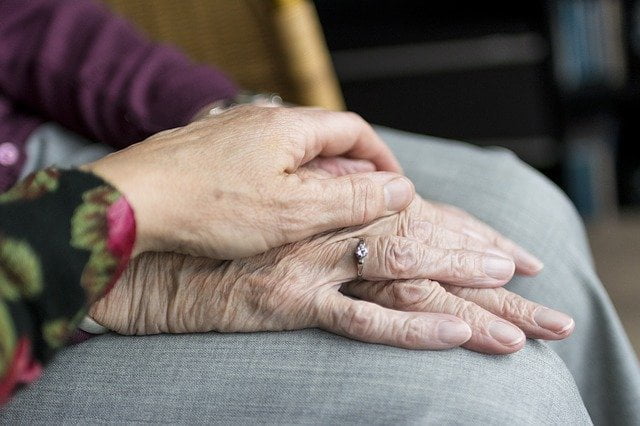
Older person and younger person holding hands at a drug and alcohol rehab in Norfolk
There are some circumstances that make it very clear that you need to access rehab in Norfolk for top-level drug addiction treatment.
If you’re experiencing any of the following, rehab is the most suitable option for you:
- Repeatedly failing to stop taking the substance.
- Consuming 30 or more units of alcohol a day.
- Experiencing delirium tremens when you stop drinking.
- Losing control of when, how much, and why you use drugs and alcohol.
- Participating with polysubstance use (more than one substance) to feel an effect.
- Having mental health issues or suicidal thoughts.
- Becoming aggressive when under the influence.
- Having developed Wernicke’s Encephalopathy because of how much you drink.
Find out if a private rehab in Norfolk is the best choice for you by calling our team today on 0800 088 66 86
How Can I Convince a Loved One to Receive Drug and Alcohol Rehab in Norfolk?

Patients talking together at a drug and alcohol rehab centre in Norfolk
Living with someone who has an addiction is exhausting and emotionally challenging.
Addiction is complex.
It’s one of the only diseases where the person will actively participate in behaviours knowing they will worsen the condition.
This can be frustrating. It’s often really hard knowing how to help your loved one. Many families get caught up in codependent relationships. These are unhealthy and usually develop through no fault of anyone involved.
It’s really helpful for families to learn how to implement boundaries around the person with the addiction. This supports everyone involved. You can get information on how to do this through family support groups.
The most useful interventions that can be staged are those done with a professional or those where the CRAFT approach is adopted.
An intervention with a professional is where you and, for instance, a doctor meet with your loved one to explain your concerns and treatment options in the area.
The CRAFT intervention provides families with a series of tools they can use. There are different tools according to where the addicted person is on their recovery journey.
It’s a method that focuses on creating positive dynamics in the family. This provides the optimum space for people to move towards rehabilitation in Norfolk.
Begin the admissions process at a drug and alcohol rehab in Norfolk by calling ourselves today on 0800 088 66 86
What is the Admissions Process For Drug and Alcohol Rehab Like in Norfolk?

People taking notes together at a drug and alcohol rehab in Norfolk
When you enter a drug and alcohol rehab in Norfolk, there are psychiatric assessments.
These are essential as they inform what treatments will be on your recovery programme.
The DSM-5 assessment
This assessment is concerned with the severity of your addiction to drugs. It was constructed by a team of addiction experts and takes into account various aspects of addiction rather than focusing on physical withdrawal.
In this assessment, you’ll discuss:
- Whether you have tried to reduce how much you use and whether you’re able to.
- If you have stopped doing other activities due to substance use.
- Using despite unhealthy or dangerous consequences.
- Tolerance levels.
The ASAM assessment
The goal of this assessment is to give the doctor the full picture of your health, life, personality, and addiction. This is quite in-depth and requires honesty. It will clarify what addiction treatment services are going to be best for your needs.
The topics covered are:
- How you think and feel about life and in response to events.
- What your physical health has been like up to the current moment.
- What your experience of withdrawal is like.
- Whether you want to recover and what recovery means to you.
- What your home living environment is like.
- How your addiction affects you and those around you.
The AUDIT assessment
People suffering from alcohol addiction will participate in the AUDIT assessment. This is a robust questionnaire comprising 10 questions. You choose from 1 of 4 questions and your answers are scored. A score over 13 is a serious cause for concern.
The questions focus on:
- How often you drink.
- What triggers you to drink.
- What you do after drinking and how you feel about it.
- The effects drinking has on your relationships.
Begin the admissions process at a drug and alcohol rehab centre in Norfolk by calling ourselves today on 0800 088 66 86
How Much Will it Cost to Stay at a Drug and Alcohol Rehab in Norfolk?

Photo of a credit card resting on a laptop
A stay at rehab centre needs to be budgeted for. There are various options. It’s also worth calling Rehab Recovery as we can run you through more specific costs of local rehabs in Norfolk.
The price usually comes in around:
- £2,000-£4,000 for a shared bedroom to have a 10-day detox. It would be £3,000-£6,000 for a private room to yourself.
- £6,000 for a multi-occupancy room and 28-day stay. It would be £8,000-£12,000 for a single occupancy room.
- A medically overseen detox at home under the care of a doctor is around £1,500.
Find out how much a stay at a drug and alcohol rehab in Norfolk will cost by calling our team today on 0800 088 66 86
How Do you Know Which Drug and Alcohol Rehab in Norfolk is Right?

Two people sat outside with a dog at a drug and alcohol rehab in Norfolk
It’s hard to know what to expect when you go to rehab in Norfolk. Each rehab centre is slightly different too.
Knowing which is going to suit you best can be hard to figure out.
There are ways you can make the decision easier:
- Find out what rehab clinics are in the Norfolk area and research each one.
- Find out the specialities of each rehab. Some might be experts on treating for a particular substance, or in using psychotherapies over group sessions, for instance.
- Look up what other people have to say about the clinics. There will be reviews and testimonials online.
- Call the rehabs you’re interested in and ask questions.
- Find out what the aftercare support entails and whether you think it will suit you.
Our expert team is happy to guide you through your options.
Make sure that you end up at your ideal drug and alcohol rehab in Norfolk by calling our team today on 0800 088 66 86
Will I Need a Detox Programme/Alcohol Withdrawal Treatment?

Two people having a serious conversation at a drug and alcohol rehab clinic in Norfolk
Alcohol detox is essential for those who have developed a physical dependence on alcohol.
If you’re unsure whether you have a dependency, there are alcohol withdrawal symptoms you can look out for, including:
When you go through detox at a private clinic, it will last around 7-10 days. This is the length of time to be weaned off alcohol safely with the assistance of a Librium prescription.
A doctor will oversee this process to ensure your safety.
Some people might have a supervised home detox.
This is where a doctor prescribes drugs each day after being in contact with the patient. It takes place at home and lasts the same amount of time as a detox at a clinic.
Make sure that your detox occours effectively and safely with the help of a drug and alcohol rehab in Norfolk – call us today on 0800 088 66 86
What Happens During Detox?

Woman meditating next to a lake at a drug and alcohol rehab clinic in Norfolk
One of the other things that people will need to consider even before they enter rehab is if they are going to need a detox. Many rehabs in Norfolk will offer detox as part of their services or it may be necessary to enter a separate facility for this.
It is often possible to arrange a home detox package where the individual can be monitored by health care professionals in their home.
Probably the best option is to have the detox as part of the rehab program because:
- The individual will be able to move seamlessly from the detox stage to the rehab stage.
- It will mean that they are monitored as they go through the withdrawal process. This is particularly important for those individuals who have been using alcohol or drugs for a long time because they may be at risk of severe symptoms. By entering a rehab detox the individual will not only be monitored closely, but the doctors will also be able to prescribe drugs that will make the detox process a bit easier.
- By entering rehab for detox the individual can begin their recovery program from day one. They will be able to attend group therapy and individual therapy while still going through withdrawals. This will mean that they will be able to complete the rehab program sooner, and it should also make it easier for them to deal with the withdrawal symptoms.
- This is the time when the individual is most likely to relapse. By staying in a rehab facility they will be protected and it is relatively rare that people will fail to make it through this stage.
- By staying in rehab the individual will get plenty of support and encouragement to help them get through the detox process. They will also be with people who are dealing with the same thing, and this often makes things much easier to cope with.
Learn more about the various addiction treatment services in Norfolk by calling us today on 0800 088 66 86
What is a Medically Assisted Drug or Alcohol Detox?
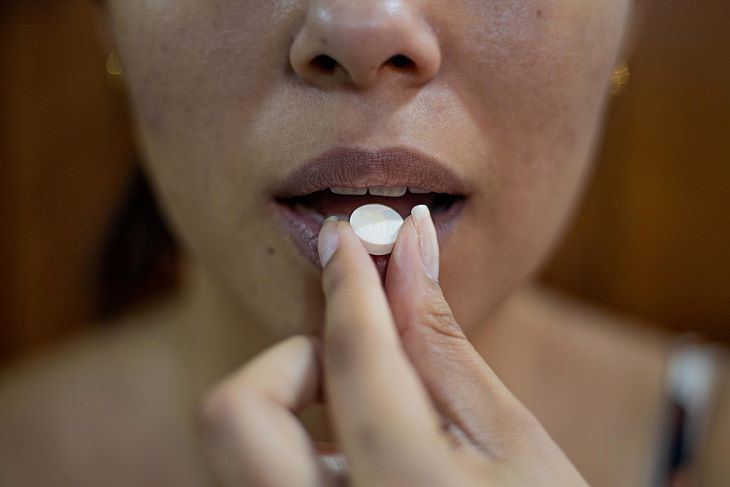
Woman taking a pill at a drug and alcohol rehab centre in Norfolk
For any individual struggling with addiction, there are three stages of rehabilitation in Norfolk which they are recommended to go through, either in Norfolk or in a location that is accessible to them.
The first stage of rehabilitation is detoxification – the removal of harmful chemicals from the body that have built up as a result of addiction.
Depending on the substance, this can be a serious and life-threatening procedure due to the dangers of the substances and their effects on the body.
In some cases, a medical intervention may be required. This is where medical professionals may prescribe certain drugs to overcome the adverse effects of a withdrawal.
In one study, those who partook in medical interventions were shown to have higher rates of abstinence in the future.
This was shown in 32.9% of cases compared to 18.9% of individuals who did not have medically assisted detoxes (14).
How Long Does a Detox Last?

Man reading a book in a bed at a residential drug and alcohol rehab in Norfolk
Depending on the substance, a full detoxification process in Norfolk can take anywhere from 7 days to 14 days or more.
Some substances, such as cannabis, have fewer physical effects than substances such as alcohol and heroin, making the detox process far shorter in most cases.
However, alcohol has an especially long detox process due to the complexities involved in the physical and mental health complications.
One study showed that even on the sixth day of withdrawals, 70% of male alcoholics still had a reaction of increased urge when presented with alcohol, and 65% reacted with increased salivation, showing the length of time that an individual may continue to experience effects (15).
Is Detox with No Rehab Possible?
Though it is recommended that all individuals seeking help through Rehab Recovery in Norfolk follow the three stages of detoxification, rehabilitation, and aftercare, it is common that many individuals take part in a detox but fail to follow this up with further care.
This is possible to do but has a much lower success rate when concerning long-term abstinence and recovery.
Between 1992 and 1997, one study showed a decline in access to inpatient rehabilitation after inpatient detoxification from 38.9% to 21.1%, showing the lack of attendance in further treatments (16).
This means that many of the mental health effects associated with addiction are likely to go untreated, adding to the dangers of relapse and further mental and physical heath damage.
What Happens After Initial Detoxification?
After the initial stage of detoxification, it is recommended that individuals in Norfolk and across the UK seeking rehabilitative care continue to the next stage of care – therapy and rehabilitation.
As mentioned earlier, this stage of therapy is best implemented when the individual has access to specialised and tailored care, as well as avoiding aspects of boredom and lack of motivation (17).
However, it is important that the individual also actively partakes in different forms of treatment, taking part in treatments such as cognitive behavioural therapy (CBT), holistic treatments, family drug support, and co-dependency treatments.
How Long Will Drug and Alcohol Rehab in Norfolk Last?
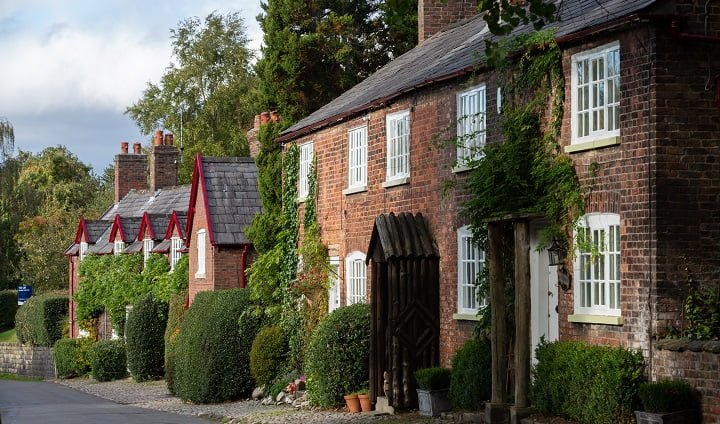
Outside photo of a residential drug and alcohol rehab in Norfolk
Staying at a drug and alcohol rehab in Norfolk usually lasts 10 or 28 days. 10 days is usually the case for a person who has entered to detox from a substance like alcohol, heroin, or benzodiazepines.
It’s recommended, though, that people who stay for 10 days remain for more input. This is especially useful for a person entering rehab for the first time.
Psychological and social therapies are needed in order to build the foundations for a sustainable long-term recovery.
The ideal length of stay for a person to stay at rehab in Norfolk to participate in a full recovery programme is 28 days.
Find out exactly how long your stay at a drug and alcohol rehab in Norfolk is likely to last by calling us today on 0800 088 66 86
Cocaine Rehab in Norfolk

Therapist taking notes with an individual at a drug and alcohol rehab in Norfolk
Many people throughout the Norfolk area are entering rehab for treatment for cocaine problems.
This substance has become increasingly popular in recent years.
This is due to accessibility and how it’s often glamourised in popular culture.
Cocaine addiction, cocaine dependence or addiction to crack cocaine cause the following issues when used long-term:
- Skin sores
- Deterioration of nose cartilage
- Cardiovascular problems
- Respiratory problems
- Illnesses and diseases in the vital organs
- Mental health issues
Treatment for cocaine use focuses on psychotherapies and alternative rehab therapies. There’s an emphasis on understanding what in your life has led you to this moment.
Cocaine is not physically addictive, so there is no need for a cocaine detox.
From this, people are guided to understand how to create behavioural changes inspired by thoughts and new activities.
You can also find help from a Cocaine Anonymous (CA) group in Norfolk.
Beat your cocaine addiction with the help of a drug and alcohol rehab in Norfolk by calling us today on 0800 088 66 86
Heroin Rehab in Norfolk
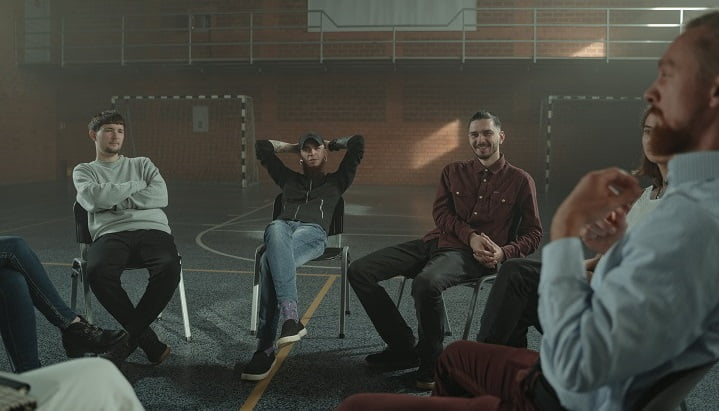
Therapy group in progress at a drug and alcohol rehab in Norfolk
Heroin addiction is often linked to people having experienced serious trauma or emotional pain. Even if it didn’t create a serious physical dependency, it would require deep input for the psychological aspect.
On entering rehab in Norfolk, residents begin a heroin detox. This lasts between 7-10 days depending on the individual circumstances. The prescription drug Subutex will help to ease withdrawal symptoms and keep the patient safe.
Following detox, psychological therapies begin.
These focus on the causes of the addiction as well as the triggers that maintain use in the present. Strategies are used to enable the person to begin making changes to how they think, feel, and live.
It’s important during a heroin detox, to gradually transition from heroin to similar prescription drugs like methadone and buprenorphine.
As heroin is physically addictive, this process is essential to avoid dangerous health complications during heroin withdrawal.
Beat your heroin addiction with the help of a drug and alcohol rehab in Norfolk by calling us today on 0800 088 66 86
Cannabis Rehab in Norfolk

Thick clouds of cannabis smoke
Cannabis is often used by people in a recreational way. Many use it to self-medicate around anxiety, depression, pain, or sleep disturbances. Unregulated use of illegal cannabis, however, means that people aren’t aware of the strengths they’re ingesting.
People can become addicted to cannabis and tobacco if they’re smoked together.
Symptoms of cannabis addiction include:
- Sleep disruption
- Mood swings
- Weight issues (being unable to put on weight or overeating)
- Paranoia
- Anxiety
- Mental health issues such as psychosis.
Treatment empowers people to think about why they use cannabis and how to stop it. It focuses on how to create lifestyle changes and bring new value to life.
No cannabis detox is needed.
Group work and addiction counselling sessions are especially beneficial.
Beat your cannabis use disorder with the help of a drug and alcohol rehab in Norfolk by calling us today on 0800 088 66 86
What is Alcohol Addiction Like in Norfolk?

Woman drinking a hot drink and typing on a laptop in bed at a residential drug and alcohol rehab in Norfolk
Is it Bad to Drink Alcohol Daily?
You’re more likely to become dependent on alcohol if you drink alcohol every day, as the chemicals in your body will adjust to the point that your system will struggle function normally in its absence.
Senior addiction scientist Jurgen Rehm discovered in a recent study that the higher your alcohol intake, the higher your chances of disease or death.
What Are the Signs That An Alcohol Addiction is Present?
If you’ve found yourself thinking about alcohol every day, or you’re noticing your intake has gone up, you may be battling an alcohol addiction.
Impaired control over alcohol use could look like binge drinking – drinking a lot in one go, or it could be drinking small amounts daily or over the course of the day.
The brain and body can grow used to the chemical presence of alcohol, and adjust to it. Alcohol can also take its toll on your vital organs. This can result in health conditions like Wernicke encephalopathy and alcoholic hepatitis, which can be serious.
What Happens in Alcohol Rehab?
An Alcohol Use Disorders Identification Tests such as the CAGE questionnaire can measure how much and how often you’re drinking alcohol, measure the severity of your situation.
The American Society of Addiction Medicine’s Patient Placement Criteria (ASAM Criteria) is another assessment that can be used.
How Can I Recover From Alcoholism?
Dennis Donovan and other researchers in a study about the differences between alcohol-treatment outcomes discovered that attending aftercare groups for 9 months helped people to be three times more likely to stay sober.
What Are the Benefits of Alcohol Rehab?

Therapist speaking with a support group at a drug and alcohol rehab in Norfolk
Though there are many benefits to alcohol rehabilitation in Norfolk and across the UK, these are further highlighted when looking at a lack of alcohol rehab.
Without alcohol rehabilitation, individuals struggling with alcoholism are more likely to experience serious physical and mental health effects, increasing their likelihood of needing professional medical care.
In 1977, the Department of the Navy reported an annual economic loss of $360 – $680 million as a result of alcoholism within its ranks (18).
They also reported that inducting new trainees in the place of those struggling with alcoholism was 2.2 times more costly than helping those struggling to seek care.
This further proves the benefits of care and how it may not only be more beneficial for the strain on medical services, but also how it is important for individuals to overcome their addiction and work towards long-term recovery.
What Percentage of Alcoholics Recover?
There is no one answer for the question of how many individuals struggling with addiction may recover.
This is solely dependent on the individual, their history and severity of addiction, as well as their motivation and desire to recover.
Countless studies have shown the effects to the brain and how these effects may or may not be reversible, but one studies begins to suggest that long periods of abstinence lead to a higher chance of recovery and less long-term symptoms, as well as the possibility of partially recovering from specific brain syndromes and diseases.
However, these chances are only achievable should the individual seek care as soon as possible. The sooner an individual seeks care in their local area of Norfolk, the higher the chance is that they will make an effective and long-term recovery.
Can I Do An Alcohol Detox At Home?
If you’re found to have developed a severe addiction, you’ll need to undergo a medically-assisted alcohol detox.
When a person who has been drinking heavily for an extended period of time suddenly stops drinking, the body can go into an unpleasant or even dangerous process of withdrawal.
If detoxing is done wrong, it can lead to seizures, alcohol withdrawal syndrome, or Delirium Tremens, so it’s vitally important that you do consult a health professional if you’re a heavy user.
What Medications May Be Prescribed During Rehab?
Chlordiazepoxide/Librium is a drug which reduces alcohol withdrawal symptoms during this essential period of your recovery.
Reach out to Al-Anon, The National Association for Children of Alcoholics, or Alateen for more free help and guidance in your area.
What Therapies are Available at a Drug and Alcohol Rehab in Norfolk?

Woman reading a book next to a fire at a drug and alcohol rehab centre in Norfolk
Each person at rehab in Norfolk will be provided with a tailored programme that will include therapies and a variety of activities. Each day will be slightly different but the person will engage with healing and therapeutic sessions throughout most of the day.
The National Institute for Health and Care Excellence (NICE) offers guidance and feedback to ensure health and social care providers across the nation meet quality standards. This includes talking therapies and all other treatments.
The therapies include:
- Dialectical behaviour therapy addresses trauma and deep emotional pain. It enables people to react from a place of power rather than being triggered.
- Cognitive behavioural therapy focuses on changing how you think in order to change your brain’s neural pathways. This is where the start of new behaviours begin. In a recent study, only 23.80% of people in recovery relapsed after this type of therapy (19).
- Motivational interviewing helps to make you more determined on quitting substances and believe in yourself. This often comes alongside Motivational Enhancement Therapy & motivational therapy.
- Music therapy and art therapy are used to provide residents with explorative ways to express experiences without talking.
- Groups such as 12 Step groups offer support and connection, harnessing help from a ‘higher power’. This is essential in order to build the “spirit” of long-term healing.
- SMART Recovery Groups to give you the practical skills for achieving small goals each day. This keeps you focused.
- Holistic therapies such as ear acupuncture, meditation, mindfulness, Art Therapy, Music Therapy, Meditation, Yoga, Acupuncture, Nutritional Counselling, drama therapy, equine therapy and yoga. These offer you a way to connect to the body in a peaceful way.
- Acceptance and Commitment Therapy teaches you to accept your feelings and behaviours, so you can move on
- Rational Emotive Behavior Therapy uses logical thought processes to tackle disordered reasoning
- Eye Movement Desensitization and Reprocessing uses a series of eye movements to reprocess old memories and trauma
- Family Therapy works to repair familial relationships and restore ties
- Group Therapy & group psychotherapy provides the support of a group of peers that can support you, as you support them
- Brief interventions are quick screenings that initiate change for risky behaviours
- Codependency therapy addresses unhealthy, co-dependent relationships and seeks to remove enabling behaviours
Experience any and all of these effective therapies through an alcohol and drug rehab in Norfolk by giving our team a call on 0800 088 66 86
How Will I Sustain My Sobriety Once I Leave Drug and Alcohol Rehab in Norfolk?

Staff member and patient smiling together at a drug and alcohol rehab clinic in Norfolk
After rehabilitation, and as the third stage of drug and alcohol rehab in Norfolk, individuals are generally offered some form of aftercare.
This is any type of treatment that an individual receives after leaving rehab – either outpatient or inpatient – and supports their further recovery, learning, and development of self-help activities and relapse risk prevention.
Key factors associated with a strong aftercare system include social and community support, inclusion in group support sessions, and realisation of the negative consequences of substance abuse.
For recovering alcoholics, Acamprosate is a drug that may help you to remain sober. This medicine can be taken after detox, to restore the chemicals in your body back to pre-alcohol levels, ensure alcohol is no longer pleasurable, and prevent cravings to drink.
What Happens After Drug and Alcohol Rehab in Norfolk?

Two people hugging during a support group session at a drug and alcohol rehab in Norfolk
What is an Aftercare Programme?
When you finish your time at the rehab, an aftercare plan will be in place. This will have the aim of supporting you for 12 months on leaving rehab.
You will have developed it with staff at the centre through many discussions.
It will outline new activities and achievable goals that you’ll work towards. There will be support groups you can go to outlined on the plan and what to do in the event of relapse.
Relapse prevention will be addressed with you. It’s likely you’ll be introduced to the HALT method. This is where when you’re triggered you pause for a moment and decide whether you’re hungry, angry, lonely, or tired.
These methods are contingency management and healthy coping mechanisms, that promote sobriety by giving you a safety net of tools and resources.
These states often cause people to crave alcohol and drugs. When you have identified this, you’ll then follow the steps to manage the craving that you and the member of staff have planned for.
If you’d like a stepping stone between rehab and the outside world, sober living houses are a great transition. Connect with others in recovery and keep your space free from any relapse triggers.
Make sure that your stay at a drug and alcohol rehab in Norfolk is matched with an equally effective relapse prevention plan by calling us today on 0800 088 66 86
Frequently Asked Questions About Drug and Alcohol Rehab in Norfolk

Friends having a serious conversation at a drug and alcohol rehab in Norfolk
Will I Be Able to See My Family During Rehab?
When an individual begins rehab in Norfolk, or anywhere else across the UK, then it is essential that they maintain concentration and motivation within their treatment programme.
Depending on this programme and its duration, location, and process, an individual may or may not be able to visit their family or receive visitation.
Those partaking in outpatient treatment, for example, are residing at home already, so will not have an issue, but those in inpatient care may have specific times in the day or week in which they will be able to visit friends and/or family.
Those taking part in family drug therapy and support will also be in contact with their family more regularly.
Can I Leave Rehab at Any Time?
As mentioned above, inpatient rehabilitation is private time for an individual to focus on themselves and their recovery. Breaking this up with visits home in and around Norfolk, stops and starts in treatment, and any other form of time away from care, may affect their long-term recovery and the effectiveness of treatments.
Recommended time in residential centres is 28 days, however, so time away from this regime may not always be necessary. Exceptions may be made in specific cases.
Will Friends and Family Be Allowed to Visit?
Also as mentioned above, the possibility of receiving visitation from friends and/or family is directly dependent on the type of rehabilitative care that the individual is undergoing.
Some inpatient centres, for example, may not have the infrastructure for visitation, whereas others may have it implemented into their weekly or daily routines.
In some centres, individuals may only have the opportunity to have a set number of visitors – implemented to ensure that individuals choose to visit those who have the best impact on them, and not individuals who may negatively influence their progress in residential care in Norfolk.
Will My Rehab Programme Be Confidential?
In all cases of rehabilitation provided by Rehab Recovery, any individual who receives care through us will have complete confidentiality.
This includes everything from initial enquiries through our addiction support line, all the way to the individual’s residential rehab care in Norfolk and any additional aftercare they receive after leaving care.
Do Rehabs Centres Provide Gender-Specific Treatment?
Through Rehab Recovery, we aim to provide support to all who need it on an equal basis.
Research shows that women are more likely to come across barriers when seeking access to rehabilitative support and are therefore less likely to seek care (20).
However, this difference means that when women do seek care, it tends to be slightly more successful than when men undergo treatment, though this difference is very slight.
How Long Does Aftercare Last?
Aftercare can last as long or as little as the individual undergoing the final stage of rehabilitation in Norfolk needs.
Depending on the treatments that they opt to continue with, and the additional rehabilitation activities that they partake in, an individual can spend varying amounts of time in the aftercare stage.
For example, some individuals choose to continue going to Alcoholics Anonymous or Narcotics Anonymous meetings for life, whereas others may only attend for a year or so before moving on with new ventures.
However, regular aftercare attendance is associated with lower levels of substance abuse after a 6-month follow up, further proving the importance of this third and final stage of care (21).
How Can I Refer Myself Into Drug and Alcohol Rehab in Norfolk?

Two patients smiling and talking at a drug and alcohol rehab centre in Norfolk
For more information on detox and rehab options in Norfolk, contact Rehab Recovery today on 0800 088 66 86. When you contact us, we shall outline a variety of treatment services that are available to you in Norfolk.
This includes both private and statutory addiction treatments.
Every rehab in England and Wales that we work with is vetted by the Care Quality Commission.
Get help for addiction across Norfolk including in Norwich, King’s Lynn, Great Yarmouth, Thetford, Aylsham, Acle, Holt, Fakenham, Cromer, North Walsham, Attleborough, Hunstanton, Burnham Market, Sheringham, Wells-next-the-Sea, Swaffham, Dereham, Wymondham, Diss, Blakeney, Downham Market, Costessey, Wroxham and many others.
References
[2] https://www.lynnnews.co.uk/news/norfolk-drug-deaths-at-record-level-9080148/
[3] Westreich, L., Heitner, C., Cooper, M., Galanter, M. and Guedj, P., 1997. Perceived social support and treatment retention on an inpatient addiction treatment unit. The American Journal on Addictions, 6(2), pp.144-149.
[4] Hubbard, L., Marsden, E. and Racholl, V., 1989. Drug abuse treatment. Chapel Hill, NC.
[5] Strauss, S.M. and Falkin, G.P., 2001. The first week after drug treatment: The influence of treatment on drug use among women offenders. The American journal of drug and alcohol abuse, 27(2), pp.241-264.
[6] Robinson, B.E. and Post, P., 1997. Risk of addiction to work and family functioning. Psychological Reports, 81(1), pp.91-95.
[7] Levine, D.A., 2007. ‘Pharming’: the abuse of prescription and over-the-counter drugs in teens. Current opinion in pediatrics, 19(3), pp.270-274.
[8] Soto, C.B.D., O’Donnell, W.E., Allred, L.J. and Lopes, C.E., 1985. Symptomatology in alcoholics at various stages of abstinence. Alcoholism: Clinical and Experimental Research, 9(6), pp.505-512.
[9] Sereta, B.N., Amimo, F.A., Ouma, P. and Ondimu, T.O., 2016. An assessment of effectiveness of drug rehabilitation programs in Kisii County-Kenya.
[10] Kozak, L. J., Hall, M. J., & Owings, M. F. (2002). National Hospital Discharge Survey: 2000 annual summary with detailed diagnosis and procedure data. Vital and health statistics. Series 13, Data from the National Health Survey, (153), 1–194.
[11] Rowe, C.L., 2012. Family therapy for drug abuse: Review and updates 2003–2010. Journal of marital and family therapy, 38(1), pp.59-81.
[12] Emrick, C.D., 1987. Alcoholics Anonymous: affiliation processes and effectiveness as treatment. Alcoholism, Clinical and Experimental Research, 11(5), pp.416-423.
[13] Beck, A.K., Forbes, E., Baker, A.L., Kelly, P.J., Deane, F.P., Shakeshaft, A., Hunt, D. and Kelly, J.F., 2017. Systematic review of SMART Recovery: Outcomes, process variables, and implications for research. Psychology of Addictive Behaviors, 31(1), p.1.
[14] Merkx, M.J., Schippers, G.M., Koeter, M.W., De Wildt, W.A., Vedel, E., Goudriaan, A.E. and Van Den Brink, W., 2014. Treatment outcome of alcohol use disorder outpatients with or without medically assisted detoxification. Journal of studies on alcohol and drugs, 75(6), pp.993-998.
[15] Monti, P.M., Rohsenow, D.J., Rubonis, A.V., Niaura, R.S., Sirota, A.D., Colby, S.M. and Abrams, D.B., 1993. Alcohol cue reactivity: effects of detoxification and extended exposure. Journal of studies on alcohol, 54(2), pp.235-245.
[16] Mark, T.L., Dilonardo, J.D., Chalk, M. and Coffey, R.M., 2002. Trends in inpatient detoxification services, 1992–1997. Journal of Substance Abuse Treatment, 23(4), pp.253-260.
[17] McLellan, A.T., Hagan, T.A., Levine, M., Meyers, K., Gould, F., Bencivengo, M., Durell, J. and Jaffe, J., 1999. Does clinical case management improve outpatient addiction treatment. Drug and Alcohol Dependence, 55(1-2), pp.91-103.
[18] Borthwick, R.B., 1977. Summary cost-benefit study results for Navy alcoholism rehabilitation programs. Arlington, Va.: Presearch Inc.
[20] Green, C.A., 2006. Gender and use of substance abuse treatment services. Alcohol Research & Health, 29(1), p.55.
[21] Arbour, S., Hambley, J. and Ho, V., 2011. Predictors and outcome of aftercare participation of alcohol and drug users completing residential treatment. Substance Use & Misuse, 46(10), pp.1275-1287.


